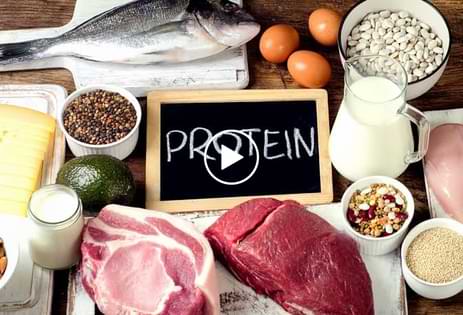
Unlocking the Power of Plant Protein: A Game-Changer for Muscle Gains
Source: Runners World (March 2021)
Lifestyle Medicine Update (March 17, 2021)
Introduction:
In a world where fitness enthusiasts are perpetually seeking the ideal protein source for muscle growth, a groundbreaking study mentioned in Runners World Magazine in March 2021 shook the foundations of traditional beliefs. This study showcased the remarkable potential of plant-based protein, demonstrating that it can be just as effective as animal protein for building muscle, even in young and healthy individuals.
The Muscle-Building Equation: Protein and Resistance Training
Building muscle and achieving lean mass requires two essential components: engaging in resistance training and ensuring an adequate protein intake. Historically, animal protein, particularly whey protein, has taken the spotlight for its superiority in promoting muscle protein synthesis. Animal protein offers a more comprehensive array of amino acids, crucial for muscle development, and boasts higher levels of leucine—an amino acid that plays a pivotal role in initiating muscle protein synthesis.
The Study: A Game-Changer for Plant-Based Athletes
The study under the spotlight involved 38 men, with an average age of 26, embarking on a 12-week leg-focused resistance training program. Intriguingly, half of the participants were long-term vegans, while the other half were lifelong omnivores. While they maintained their usual diets, they supplemented their protein intake using soy protein for the vegans and whey protein for the omnivores, ensuring both groups received 1.6 grams of protein per kilogram of body weight—the recommended amount by the American College of Sports Medicine for supporting athletic activity.
The results were nothing short of astonishing. After three months of training and supplementation, both groups exhibited substantial increases in leg lean mass and hypertrophy. Furthermore, participants from both backgrounds improved their leg press machine performance. This led the researchers to conclude that the source of protein appeared to be of lesser significance as long as the recommended protein intake was met.
The Plant-Based Advantage and Considerations
Plant-based athletes may need to lean a bit more on protein supplementation to reach their daily protein targets. In the study, vegan participants required approximately 58 grams of supplemental soy protein per day to achieve the desired intake, while omnivores needed only 41 grams. It’s important to note that this study focused on relatively young men, and further research is needed to assess different populations, including older adults and women who may face unique challenges in muscle maintenance and development.
Plant Protein Powerhouses: A Handy Guide
For those exploring plant-based protein sources, here’s a list of protein-rich plant foods and their corresponding protein content:
- Seitan: 21 grams per 3 ounces
- Lentils: 18 grams per cup
- Edamame: 17 grams per cup
- Beans: 15 grams per cup
- Chickpeas: 5 grams per cup
- Veggie burger: 15 grams per patty
- Tofu: 12 grams per 4 ounces
- Spelt: 11 grams per cooked cup
- Peas: 9 grams per cup
- Hemp seeds: 9 grams per 3 tablespoons
- Quinoa: 8 grams per cup
- Nut butter: 8 grams per 2 tablespoons
- Soy milk: 7 grams per cup
- Seeds and nuts: 6 to 8 grams per ¼ cup
The Key Takeaway: Embrace Resistance Training and Protein Intake
In summary, it’s essential to incorporate resistance training into your lifestyle, especially if your job lacks physical demands. Muscle loss begins as early as a person’s late twenties, and without intervention, it can lead to a decline in functional abilities and independence in later life. By addressing lean mass preservation and strength gains early on, you can significantly improve your quality of life.
Meeting your daily protein requirements is equally crucial. Aim for at least 1.2 grams of protein per kilogram of body weight each day. If you struggle to attain this through your regular diet, consider incorporating protein powder shakes. While the study showcased the effectiveness of soy protein for vegans and vegetarians, there are various protein sources available to cater to individual preferences.
So, whether you opt for animal or plant-based protein, the key to building muscle and achieving lean mass lies in a combination of resistance training and sufficient protein intake.
Reference
Runners World, March 12, 2021 (Author: Slene Yeager)
[Read more here](https://www.runnersworld.com/news/a35807952/plant-protein-vs-animal-protein-for-muscle-gain-study/)
Eat Smart, Live Well, Look Great
Dr. Meschino

Dr. James Meschino
ABOUT THE AUTHOR
Dr. James Meschino, DC, MS, ROHP, is an educator, author, and researcher having lectured to thousands of healthcare professionals across North America. He holds a Master’s Degree in Science with specialties in human nutrition and biology and is recognized as an expert in the field of nutrition, anti-aging, fitness, and wellness as well as the author of numerous books.


